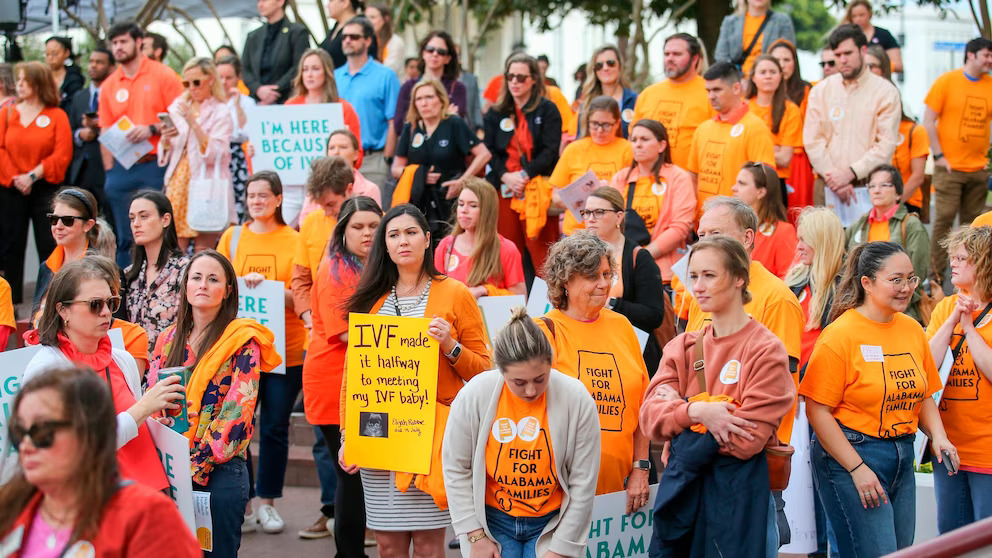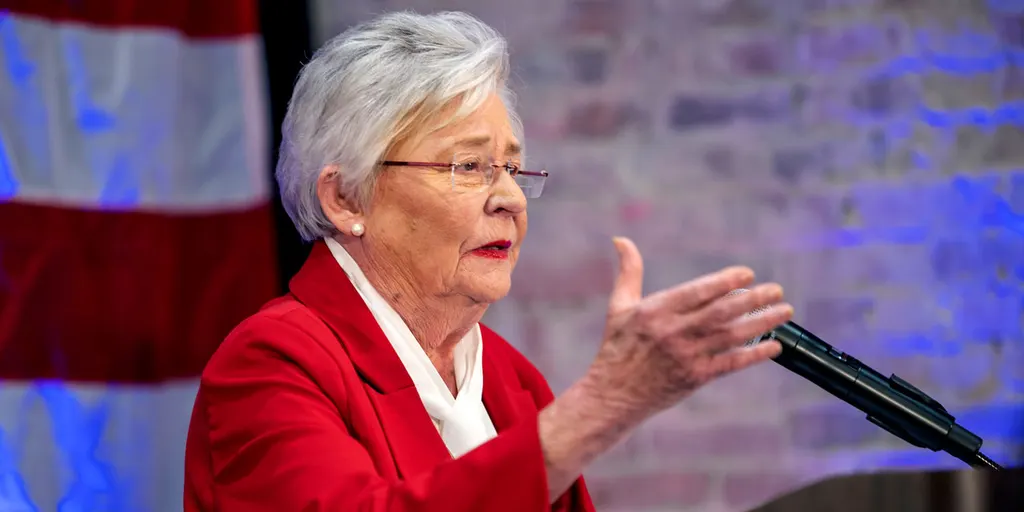Alabama Governor Kay Ivey signed into law a measure to safeguard in vitro fertilization (IVF) procedures following a state Supreme Court ruling that categorized frozen embryos as children. The legislation, swiftly passed by the Republican-controlled legislature, shields IVF providers from criminal charges and civil lawsuits.
The Alabama Supreme Court‘s decision, prompted by lawsuits against a fertility clinic and hospital for mishandling frozen embryos, raised uncertainties regarding the storage and use of embryos. This led several IVF providers to halt services, prompting concerns among patients and legislators.

Governor Ivey acknowledged the complexity of the issue but expressed confidence in the new law’s ability to provide clarity and encourage IVF clinics to resume operations promptly. The legislation addresses concerns arising from the Sanctity of Unborn Life Amendment, which emphasizes the rights of unborn children.
The ruling ignited debates over reproductive rights, with Democrats highlighting the potential threats to IVF procedures. IVF involves fertilizing eggs and sperm in a laboratory dish to assist couples struggling with conception.
While the new law offers reassurance to IVF clinics, it does not fully resolve the legal intricacies raised by the court ruling. Some providers are considering perpetual storage of unused embryos, pending further clarity on regulatory requirements.

The swift legislative response underscores the urgency to address the legal uncertainties surrounding IVF procedures in Alabama. The state’s proactive approach aims to protect patients’ reproductive rights while ensuring the ethical and legal considerations surrounding IVF are appropriately addressed.
Governor Ivey’s signing of the legislation marks a significant step in restoring confidence in IVF services and providing clarity to patients and providers amidst ongoing legal debates.





